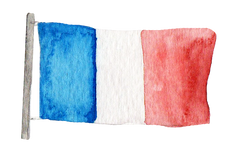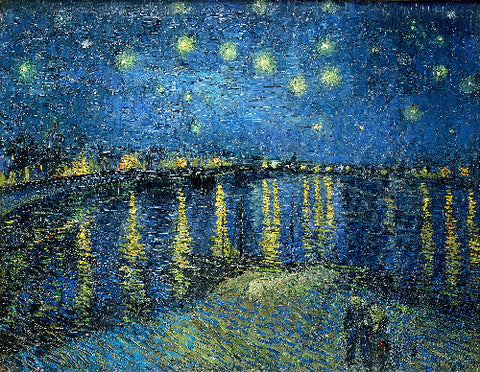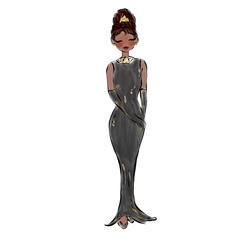
By Shiloh Richter, M.A.
24 February 2023



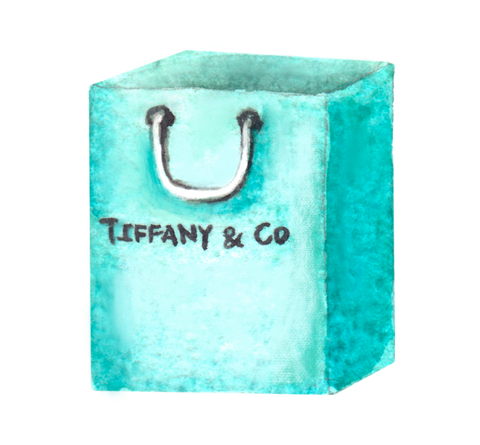
The Historical, Numinous, Magical, Hilarious, Literary Beginnings of Breakfast at Tiffany's
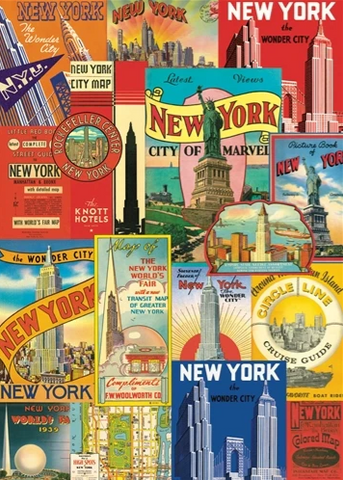
Truman Capote didn’t write BREAKFAST AT TIFFANY’S. Willa Cather did. Truman Capote stole it, and Audrey Hepburn knew it (and set out to do something absolutely marvelous about it). Part V.

It’s the caper of the millennium and it’s ON.
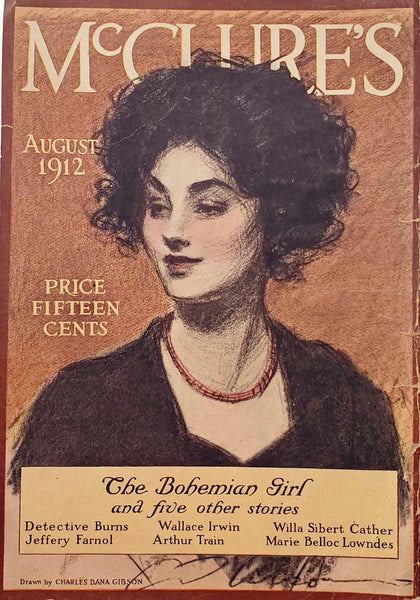
Upon Willa Cather’s return home to New York in June 1912 from her inner-depth-shifting train trip to the American Southwest to Arizona and New Mexico, coming by train through our forest and near our home (me and my boys) that would be built here exactly 100 years after her birth in 1873, her short story “The Bohemian Girl” (written before she left Cherry Valley, New York) was published two months later in McClure’s Magazine August 1912 issue, setting up New York City for its most iconic female story ever.

Willa knew what she was seeing into through the feminine and shifting culture, but could she imagine the path it would take? Her story was the beginning character, detail, and passion of Breakfast at Tiffany’s, as a boy from the prairies returning for “the Bohemian girl,” Clara Vavrika, having grown into a man still madly in love with her, tells her,
“But why do you fight for that so? What good is the power to enjoy, if you never enjoy? Your hands are cold again; what are you afraid of all the time? Ah, you’re afraid of losing it; that’s what’s the matter with you! And you will, Clara Vavrika, you will! When I used to know you—listen; you’ve caught a wild bird in your hand, haven’t you, and felt its heart beat so hard that you were afraid it would shatter its little body to pieces? Well, you used to be just like that, a slender, eager thing with a wild delight inside you.”
But this delight would not have happened without Audrey Hepburn’s fragile, yet indomitable spirit bringing her smile and wit to it, for Willa’s stories had fallen into selfish hands that did not intend well for women (but now we have Andy Cohen!) or for her work: their insight and power had been lost in the novella they were turned into by Truman Capote and without crediting Willa. Audrey was born in 1929, two years after Willa’s Death Comes for the Archbishop was published, and the miracle of which Willa writes, the embodiment of spirit in the Garden, is exactly what Audrey is–and she adored gardens. The female that would change the course of Willa’s stories was born to do exactly that. Willa would be amazed to see her work come to life in such a lovely, radiant, soft Being. And so the path is right. And Audrey, with her, would change the course of culture.
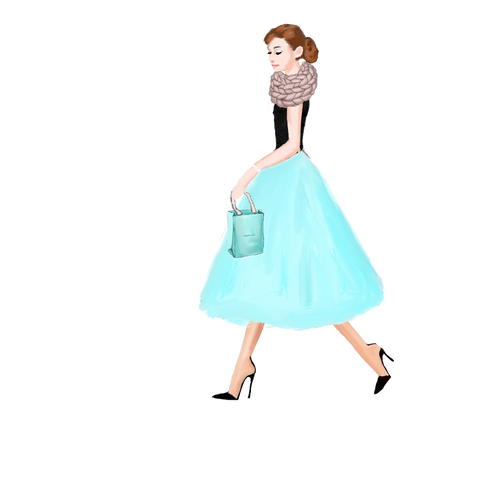
I am astonished, too, that for what I would find in both of their works, Willa’s and Audrey’s, that have inspired me so with so many millions, that the author of the numinous Santa Fe narrative Death Comes for the Archbishop came by our mountain in 1912 on her way with all of this in motion, she deciding to take the way back down through New Mexico to El Paso (when it would have been easier to leave directly from Santa Fe) east to New York City, to publish what would become Breakfast at Tiffany’s, and now, even more, as the actresses and singers Willa would love so much now in our Moment step up for the same, the embodiment she dreamt of in such beauty coming to life all around. What a moment!
It is in Willa’s story detail that the movie version actually comes to life through the screenwriter George Axelrod, obviously a Willa Cather avid reader, and through Audrey, as the story was changed back to her work in so many ways actually the driving force making the movie the delight that it is. In the movie version it is Doc Golightly who knows about Holly’s whereabouts, as in Willa's story that Clara’s Bohemian father, Joe Vavrika, who owns a tavern in the Bohemian neighborhood receives her letters about her travels–and her joy. He is the one to deliver clandestine messages about Clara’s whereabouts to the brother (Nil’s younger brother) when she and Nils finally take off.

In Truman’s version in 1958, Holly, before she takes off, tells the NYC bar owner of the same occupation and name, Joe Bell (who at the beginning of the novella is delivering the message of a possible sighting of her), using a paraphrase of Willa’s words:
“Never love a wild thing [ . . . ] That was Doc’s mistake. He was always lugging home wild things [ . . . ] But you can’t give your heart to a wild thing: the more you do, the stronger they get. Until they're strong enough to run into the woods. Or fly into a tree. Then a taller tree. Then the sky. That’s how you’ll end up, Mr. Bell. If you let yourself love a wild thing. You’ll end up looking at the sky.”
With Willa, that very sky is intimately connected with Clara. She writes about her:
“Never could she pass beyond that skyline against which her restlessness had beat so many times. She felt as if her soul had built itself a nest there on that horizon at which she looked every morning and every evening, and it was dear to her, inexpressibly dear.”
(And that is also why Audrey as Gabrielle in Paris When It Sizzles goes around Paris to do writing work carrying a canary in a bird cage. The bird’s name is Richelieu, named after a French Revolution Cardinal who historically has been given the line, “The pen is mightier than the sword.” It is a joke on screenwriter George Axelrod’s part to have such a line, and the power of what he is writing, in contrast to the opening of the movie where Richard (who is spouting off about what a writer he is and assuming Gabrielle knows nothing) has been putting on quite the display to Gabrielle about “the power of writing” while he copies what Audrey is saying while assuming he is the one writing it, just as Truman was doing to Willa. Truman also tried very publicly to take credit as the first to write a “nonfiction novel” on talk shows while copying every move from Willa. At one point Richard picks up the birdcage while referencing writing about himself saying, “The mysterious stranger, who is he?”
Furthering the joke, of course, Axelrod is referencing the idiom “sing like a canary” as “to inform against someone to the police or other authority about their criminal or illicit behavior,” of which he is showing of Truman in a hilarious way, as the bird is in the cage and carried by Audrey who is playing naiveté to its fullest while she is the one who creates the story and quite easily is its essence. And there could be slightly more to the bird being a canary joke: The cartoon character Tweety always has his line, “I tawt I taw a puddy tat,” in his on-going escapades with the bad cat Sylvester. Of course Truman has copied the cat from Willa, changing it from the dog in “Coming, Aphrodite!” George’s humor was on fire and it’s Audrey who carries it off, “the message in her shoe” and “dancing” to help the cause.
In like reference to that horizon which is dear to Clara, in Paris When it Sizzles Richard says, “That grotesque object so prominent on the horizon is the Eiffel Tower.” It is that Eiffel Tower that is the symbol of the enormity of what Audrey is stealing back in writing the screenplay The Girl Who Stole the Eiffel Tower (and the enormity of what was stolen from Willa) while letting Richard act like the writer, wrapped up in himself. Audrey’s smile does make indelibly more of an impression than the landscape, or with the landscape. Place. What would it be without her? That’s her magic. And it is the power of what Willa created.

The Bohemian girl, an immigrant to the Midwest, was born in Bergen, Norway. For the course of Truman’s version, no one really knows where she is, just like the ending of Willa’s “A Lost Lady” wherein the man who had loved her is seeking to know her whereabouts, and in “The Bohemian Girl,” Clara runs away with Nils back to her birthplace and no one knows except for her father, Joe, where she has gone, and he knows because she writes him letters—just as Truman’s Joe gets the message in his imitation. It’s not an adaptation or allusion to Willa’s works. Truman was taking credit publicly for every idea and word and letting people and the press clamor over him to no end. Clara is desperate to get out of the situation she’s in, married to a politician who only cares about votes and finagling money out of his own family, even a young girl’s inheritance, while Wikipedia to this day still states, unknowingly, “While we follow Golightly’s life in Manhattan for the entirety of the novella, she was actually born in Texas, a place that she was desperate to escape.” Clara’s life has turned to dark and sorrow and it is intensely felt how Willa portrays why she so desperately needs to go, to reclaim her life and joy, to know who she is and where she is from, what runs naturally in her blood, even as it feels to her like she holds on to her sorrow just to have something special to hold on to. It’s a much, much deeper story.

More powerful, rooted beauty taken from Willa includes the immigrant music so important throughout her work, and the sense of heritage and joy from the old world that it brings. In “The Bohemian Girl,” Joe plays the fiddle of all the old Bohemian songs while Clara plays on the piano. And Willa writes of her:

“Clara seldom came downstairs before eight o’clock, and this morning she was even later, for she had dressed with unusual care. She put on, however, only a tight-fitting black dress, which people thereabouts thought very plain. She was a tall, dark woman of thirty, with a rather sallow complexion and a touch of dull salmon red in her cheeks, where the blood seemed to burn under her brown skin. Her hair, parted evenly above her low forehead, was so black that there were distinctly blue lights in it. Her black eyebrows were delicate half-moons and her lashes were long and heavy. Her eyes slanted a little, as if she had a strain of Tartar or gypsy blood, and were sometimes full of fiery determination and sometimes dull and opaque.”
And of her house:
“Olaf had built the house new for her before their marriage, but her interest in furnishing it had been short-lived. It went, indeed, little beyond a bathtub and her piano. They had disagreed about almost every other article of furniture, and Clara had said she would rather have her house empty than full of things she didn’t want.”
With her aunt, “Clara played the piano, and Johanna used to sing Bohemian songs.” And there’s the reason she married the wrong guy:
“You see, they have it on you, Nils; that is, if you’re a woman. They say you’re beginning to go off. That's what makes us get married: we can’t stand the laugh.”
And until she knows Nils is there because he loves her, she tells him that she won’t go away,
“‘Yes–unless I go away with a man who is cleverer than they are, and who has more money.’ Nils whistled. ‘Dear me, you are demanding a good deal.’”
And Willa’s sky is inspired:
“He rode home slowly along the deserted road, watching the stars come out in the clear violet sky. They flashed softly into the limpid heavens, like jewels let fall into clear water. They were a reproach, he felt, to a sordid world.”
This female writer knew exactly what she was doing. And that makes what Audrey did all the more beautiful and generous.
When Clara’s father Joe is playing the Bohemian music on a Sunday with Nils, her father says about Clara,
“You remember how her eyes used to snap when we called her the Bohemian Girl?”
before he starts to play the songs from the actual 1843 Irish opera, The Bohemian Girl, and Clara begins to sing along the lyrics:
“I dreamt that I dwelt in ma-a-arble halls, / With vassals and serfs at my knee,"
then to another of its songs,
“For memory is the only friend / That grief can call its own.”
And then there is what she says about Nils that is recognizable in the movie:
“‘Maybe Nils hasn’t got enough to keep a wife,’ put in Clara ironically. ‘How about that Nils?’ she asked him frankly, as if she wanted to know.’”
And of their years when they were younger and wildly in love,
“We did have fun, didn’t we? None of the other kids ever had so much fun. We knew how to play.”
And Nils thinking about her: “Nils’ eyes followed her white figure as she went toward the house. He watched her walking alone in the sunlight, looked at her slender, defiant shoulders and her little hard-set head with its coils of blue-black hair.
‘No,’ he reflected; ‘she’d never be like them, not if she lived here a hundred years. She’d only grow more bitter. You can’t tame a wild thing; you can only chain it.’”
And Willa knows her females:
“From her slanting eyes Clara shot forth one of those keen glances, admiring and at the same time challenging, which she seldom bestowed on any one, and which seemed to say, ‘Yes, I admire you, but I am your equal.’”
Nils is telling her to run away with him:
“Lord, how you’d like Stockholm! Sit out in the street in front of the cafes and talk all night in the summer, just like a reception–officers and ladies and funny English people. Jolliest people in the world, the Swedes, once you get them going. Always drinking things—champagne and stout mixed [ . . . ]”
and that she won’t dislike the old women of the town,
“when you look back on them from Stockholm or Budapest. Freedom settles all that. Oh, but you’re the real Bohemian Girl, Clara Vavrika!”
And Willa also knew what an iconic tableau she was creating when Nils says:
“I don’t care. They can’t gossip. [ . . . ] Besides, we’ll give them something to talk about when we hit the trail. Lord, it will be a godsend to them! They haven’t had anything so interesting to chatter about since the grasshopper year. It’ll give them a new lease of life. And Olaf won’t lose the Bohemian vote, either. They’ll have the laugh on him so that they'll vote two apiece. They’ll send him to Congress. They’ll never forget his barn party, or us. They’ll always remember us as we’re dancing together now. We’re making a legend. Where’s my waltz, boys?’ he called as they whirled past the fiddlers.”
And so of that Bohemian music, the creators of the movie have the very best, Henry Mancini and Johnny Mercer come up with the unforgettable “Moon River” and what she will truly follow in Willa’s story:
“The moonlight flooded that great, silent land. The reaped fields lay yellow in it. The straw stacks and polar windbreaks threw sharp black shadows. The roads were white rivers of dust. The sky was a deep, crystalline blue, and the stars were few and faint. Everything seemed to have succumbed, to have sunk to sleep, under the great, golden, tender, midsummer moon. The splendour of it seemed to transcend human life and human fate. The senses were too feeble to take it in, and every time one looked up at the sky one felt unequal to it, as if one were sitting deaf under the waves of a great river of melody. Near the road, Nils Ericson was lying against a straw stack in Olaf’s wheat field. His own life seemed strange and unfamiliar to him, as if it were something he had read about, or dreamed, and forgotten. He lay very still, watching the white road that ran in front of him, lost itself among the fields, and then, at a distance, reappeared over a little hill.”
And when Clara appears in the night, Nils asks her,
“What are you doing out so late, Clara Vavrika? I went to the house, but Johanna told me you had gone to your fathers,” and she answers, “Who can stay in the house on a night like this? Aren’t you out yourself?”
Later Nils tells her that if she lost what is left, her Bohemian father, she’d lose all that’s left of herself:
“You’d lose your race, everything that makes you yourself. You’ve lost a good deal of it now.’ “Of what?’ ‘Of your love of life, your capacity for delight.’”
And later on he tells her,
“Can’t you remember that old delight? I’ve never forgotten it, or known its like, on land or sea.”
As he’s never told her about his own lot in order to see what she will choose by her own strength of character, he teases her,
“‘Look’ he said. The shadow of the straw stack fell sharp across his wrist, and in the palm of his hand she saw a silver dollar shining. ‘That’s my pile,’ he muttered, ‘Will you go with me?’
In the movie it is a touching scene where Paul asks Holly if she would marry him for his money, to which she answers, “in a minute,” without having to think about it. So Audrey.

He later tells her, “I wanted you to come on your own nerve,” and that is what Audrey is able to capture. At first Clara doesn’t agree, she wants to take in the moment, the night:
“‘Not tonight,’ she whispered. ‘Sit here and talk to me tonight. I don’t want to go anywhere tonight. I may never love you like this again.’”
It is like reexperiencing their love from when they were younger, feeling it again, and it matches the freedom of the landscape and the night. It is what was alive there for her. Willa shows it is all based on Clara’s spirit. And of her letters home:
“Joe Vavrika heard often from his daughter. Clara had always been fond of her father, and happiness made her kinder. She wrote him long accounts of the voyage to Bergen, and of the trip she and Nils took through Bohemia to the little town where her father had grown up and where she herself was born.”
It’s the realization of her spirit. This love takes her to what she is. “These messages Joe always managed to read to little Eric” [Nils’ little brother]. Eric isn’t allowed to hear from her, “But old Joe suspected what was going on, and he carried Clara’s letters about in his pockets” to deliver the messages when he could.

George Axelrod approached the situation with humor in writing the screenplay, and needed to bring the gorgeous brilliance and illumination of Willa’s female characters through as they are actually the character we fall in love with with Audrey—and additionally, wildly, now, to show how much further Willa had taken the stories and females in carefulness and insight to a cultural phenomenal shift she originally intended in her writing, just as Audrey intended in everything she so carefully did. By George changing it back to the original and marking what had happened to Willa’s masterful life of creation he provided that opening to us now. And he sought to do it with a laugh when we would find out, in hopes that we would burst out in laughter.
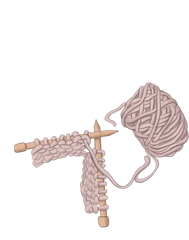
And this is where he, a New Yorker, too, could bring the stories out. In the course of Truman’s parroting Willa, he has, of course, made himself the narrator of the story, the star of the show. And so in a meeting with the upcoming movie’s producer Marty Jurow who was negotiating to purchase the movie rights from Truman, Truman put on a spectacle for himself in ownership of the story, parading and never letting on that it was all lifted, and from a masterful female. Truman met Marty in New York City at the Colony Restaurant, as Sam Wasson writes, on Madison and 51st, and Marty seeing the whole charade set up for Truman, he watched him enter in flamboyance. Sam writes,

“Just then, a nasally chirrup shot out across the room. Marty looked up. There was the leprechaun Truman Capote, bouncing ahead, extending a grin to all his admirers, and catching air kisses thrown at him from all ends of the restaurant. Yes, Marty thought, he was looking at a picture of pure showbiz, an entrance staged and costumed to Truman’s exacting perfection. If you could measure a man’s ego by the length of his scarf, then this one had no end” (Fifth Avenue, 5 A.M.).
In the meeting where Truman was paying more attention to who was in the room and more importantly, who was watching him, Wasson writes, Truman had one motive, a condition for the sale: “‘You know, of course,’ Truman said, ‘that I want to play the male lead.’” That was quietly not agreed upon, but the rights purchased. George had the ticket of the cultural attention Truman had posed for, and the rights to take it back.

It is clear Truman had made a very dark, brooding scenario about himself and making up a history of himself using Willa’s lively and brilliant spirits, with Truman unable to actually complete the female, even turning her into a hooker manipulator and playing for money (and cashing the checks himself). And so when it came time to make the movie that would become brilliance again from 1912 all the way to 1960, for George Axelrod writing the screenplay, there was this major task to retrieve the very spirit of the works, and truly, the spirit of New York City. And his humor shows up. In his light and wit, then, George brought back Willa’s European/Bohemian immigrants into the naming of the male love interest–and wild things. Truman, as ego-maniacal as he was, had left the first-person narrator unnamed, assuming the glory in New York City as himself. Naming the male lead was George’s first chance at the writer’s and characters’ retrieval, and as Truman had taken all the liberties of absconding material however he pleased, especially first of this wild thing, the Bohemian girl and her father Joe, and the man who loved her since he first knew her, George named him Paul Varjak, a last name of Hungarian origin. And here is the first twist, before the character is called “Fred” from Willa’s The Song of the Lark: in Hungarian, Varjak means “crow,” or in other words, the scavenger bird, and a bit further—a wild bird from which one can “eat crow,” or as George was quietly, hilariously showing, “humiliation by admitting having been proven wrong after taking a strong position” or “to accept that one has been defeated.” He had given the scavenger Truman the lead he earned by jesting of the plagiarism in the writer character. It opened the writing back up to George to do right by Willa, Clara, and Audrey, too. And the gift is ours.

. . . to be continued.

A Note
As a note for these series of articles I have been writing, what happened to Willa happened to me beginning in 2010. I’ve only ever written to the artists like John Mayer. You might see him wearing Southwestern things, or the others wearing Tiffany’s style or colors publicly in support, perhaps. They do it on their own accord. They do communicate it, but they do not openly speak out with me about my writing because I have to say some culturally unpopular, uncomfortable (and point out even dark) things—and the press themselves can be intentionally hurtful and harmful. The press did not care to see what actually happened in 2010. I never wanted to have to write exposé, but I have found the wonder of it with Homer, Dante, and Willa. I am peace-loving, but I also have learned to be unbreakably determined to have those boundaries that make all the difference and to see it through, even as painful as it has been. I have to. It’s gone on too long, unrealized as the harm continues and people suffer behind what is seen and known. And I have to do this on my own, without recognition or pay until it is covered truthfully in the press and the truth publicly known. As for the hate shown towards me, as Thich Nhat Hahn has said, “Go home and take care of yourself.” See you on the other side of this.
